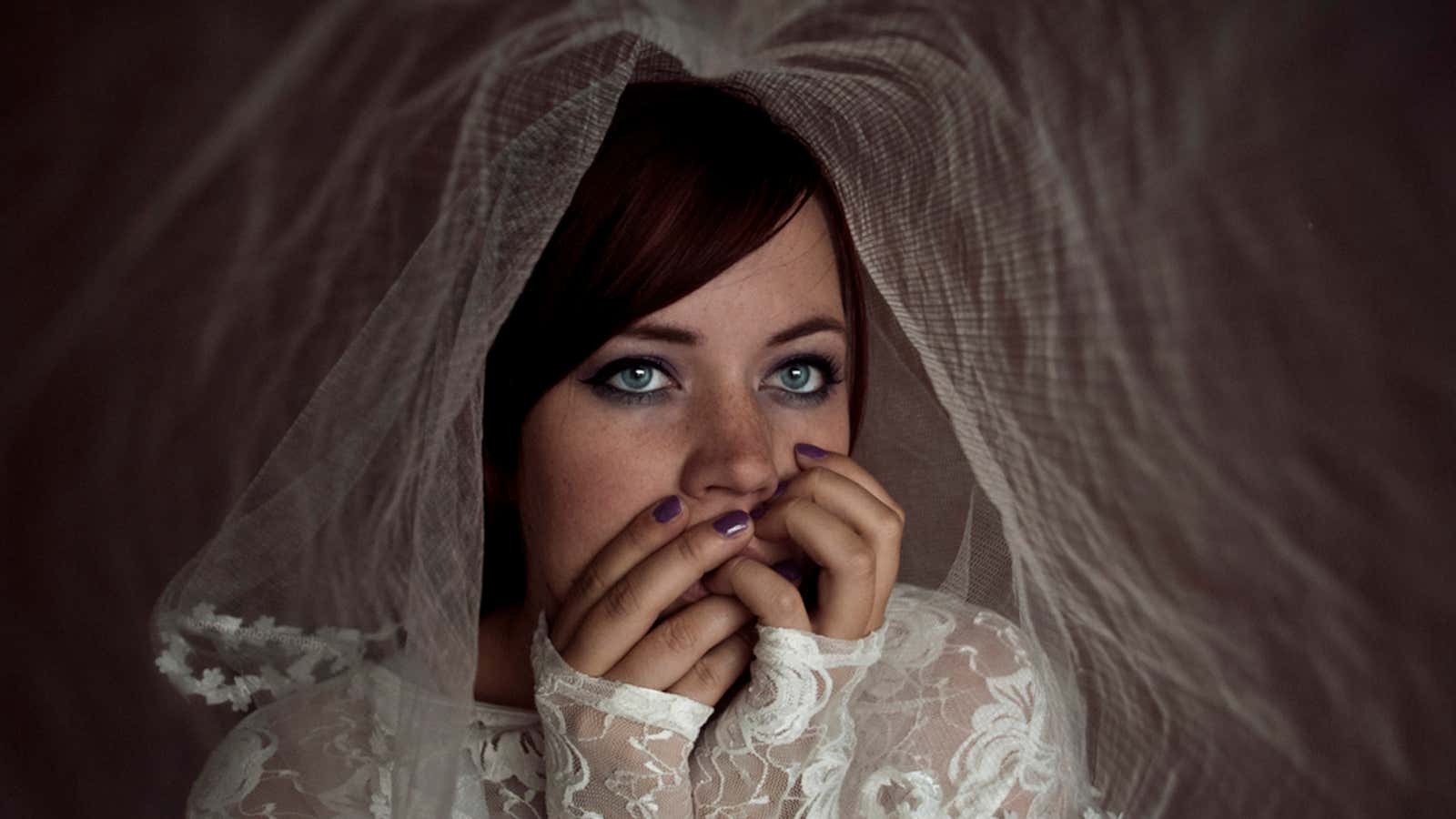The most personal thing I’ve ever written for publication is probably a 16,000 word essay about the zombie apocalypse and alien monster mind control: “Gelatinous slime creature from outside of time devoured my family—what that taught me about life and love.”
Okay, I kid. A gelatinous slime creature didn’t devour my family. But I do love films about zombie takeovers. The essay is personal in the way that one’s relationship to art is personal and mysterious and perhaps elliptically revealing, even if it’s not a first-person account of the invasion of the body snatchers. Recognizing that “personal” can mean a whole range of things is, in fact, a way to snatch your self back and define it in multiple ways for multiple audiences.
As Laura Bennett argued recently in Slate, “we are currently in the midst of an unprecedented moment in the online first-person boom.” Jezebel, xoJane, Salon, and many other media sites have garnered hundreds of thousands of views each for shocking essays in which one author discovers her biological father and has sex with him, and another learns about feminism by having his wife sleep with other men. When you add sex, scandal, and first-person pronouns, clicks multiply faster than the living dead.
But writers and readers both need to be careful. Fun and potentially cathartic, confessional essays can make writers feel good and readers feel knowledgeable, even powerful. And yet your typical online confession doesn’t actually reveal the “true self” any more than does an essay about an aesthetic passion, or a pooping greyhound.
Our fascination with heartfelt confessionals goes well beyond the online economy. Just think of Amy Winehouse, or Lena Dunham. Or consider Mary MacLane, who became a publishing sensation in the early 1900s with a series of books where she confessed to sexual fantasies about devils, men, and women. Even earlier, as Stacia Brown writes at The New Republic, slave narratives by Fredrick Douglass, Harriet Jacobs, and others were a popular and powerful means of personalizing and dramatizing the trauma and horror of slavery for a broad audience.
It’s easy to understand why readers like “it happened to me” writing, especially when what actually happened involves something scandalous or traumatic. Finding out about someone’s secrets straight from the source implies intimacy and veracity. A reader gets the thrill of knowing something hidden, and a sense of having access to someone else’s true being.
In his History of Sexuality, Michel Foucault argued that we give confession (and sex) a unique role in defining our sense of self. For instance, Foucault pointed to Catholic confession, an act in which you confess what you’ve done so that the church can tell you what you should do next. He also discussed psychoanalysis, in which you confess your dreams and desires, and the analyst gives you a narrative which unlocks the key to your true, neurotic self.
As Foucault also pointed out, confessing in these ways gives power to the listener. In the same way, written confessions give the reader leverage over the confessor. If you know that I was a virgin through college, you can use that to dismiss me as weak, or pitiful, or not worth listening too. That’s part of why it’s fun to read confession writing: it gives you power over the writer, power which some people exercise, as Bennet says, by harassing the essayists on social media.
Confessional has benefits for the writer too, of course. You can get paid to write about yourself, for one thing. And, like other writing, it can allow you to address issues that are important to you, or that you care about. But against that, you have to balance the cost of throwing yourself keyboard first into a giant media machine whose whole purpose is to grind up writers and spit out consumable authentic selves. When you write about the zombie apocalypse, nobody thinks they know you. When you write about being a college virgin, everybody thinks they do—which can turn into a cage.
Maybe, though, readers and writers can help pry that cage open, by acknowledging that confessions aren’t, and shouldn’t define writers. Confession isn’t the true self—or at least, writers, readers, and editors should work to make sure it doesn’t eat the self, like a zombie eating brains.
